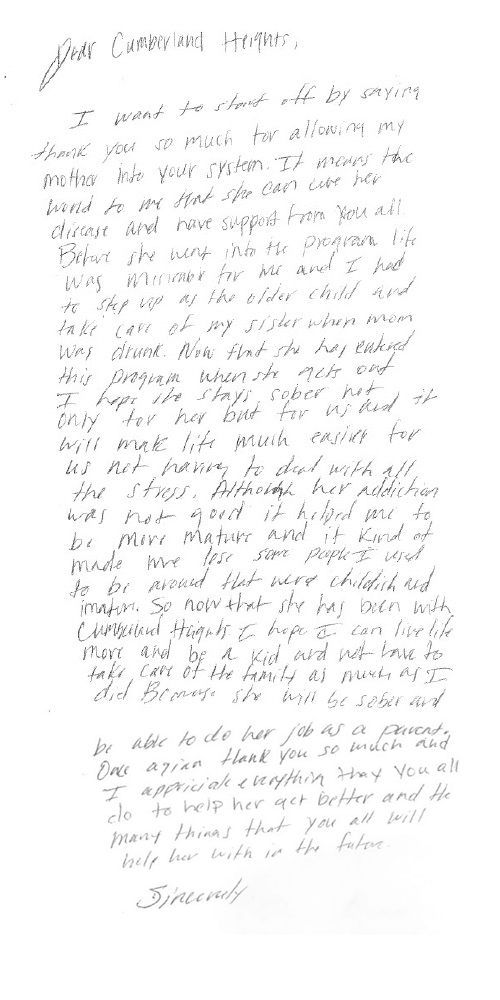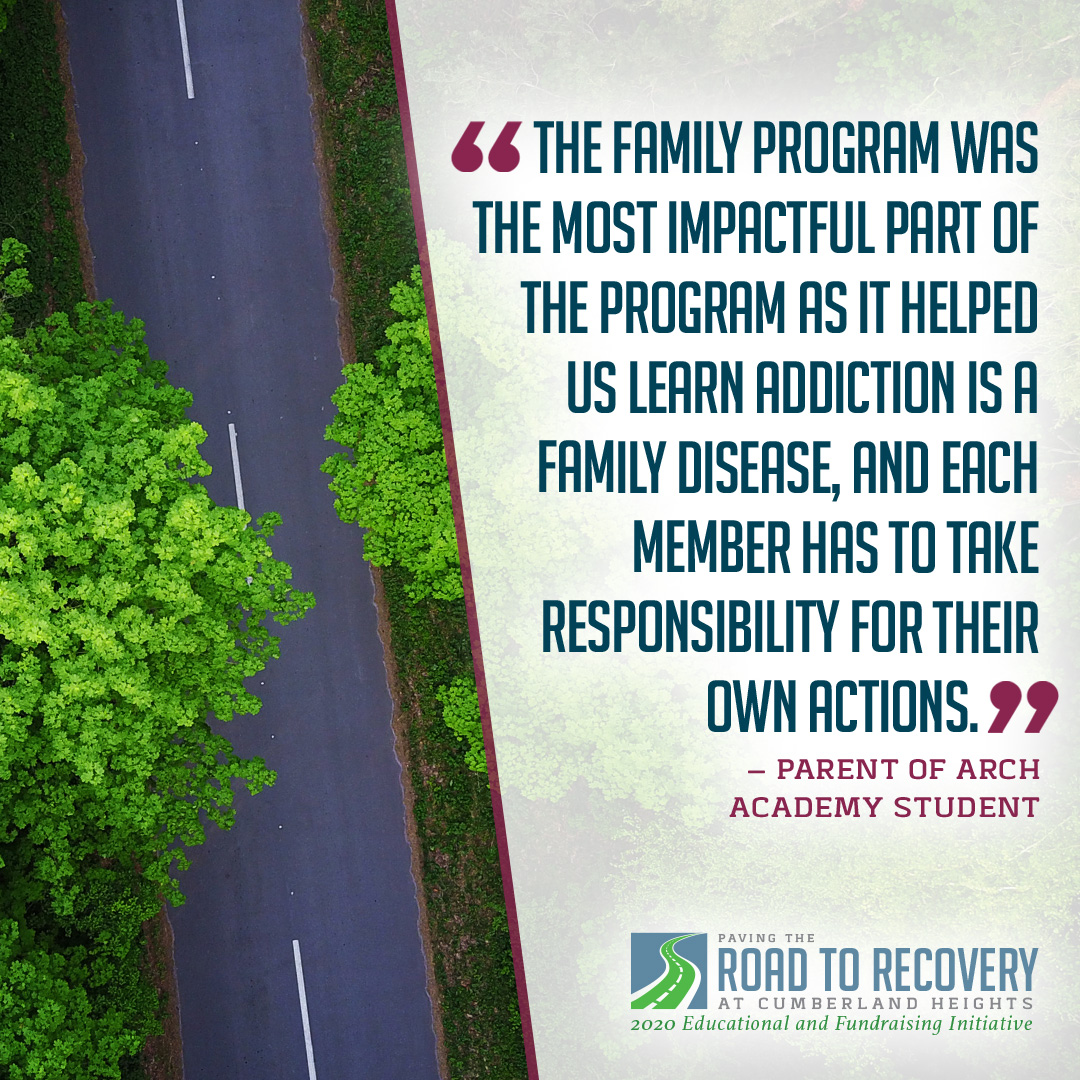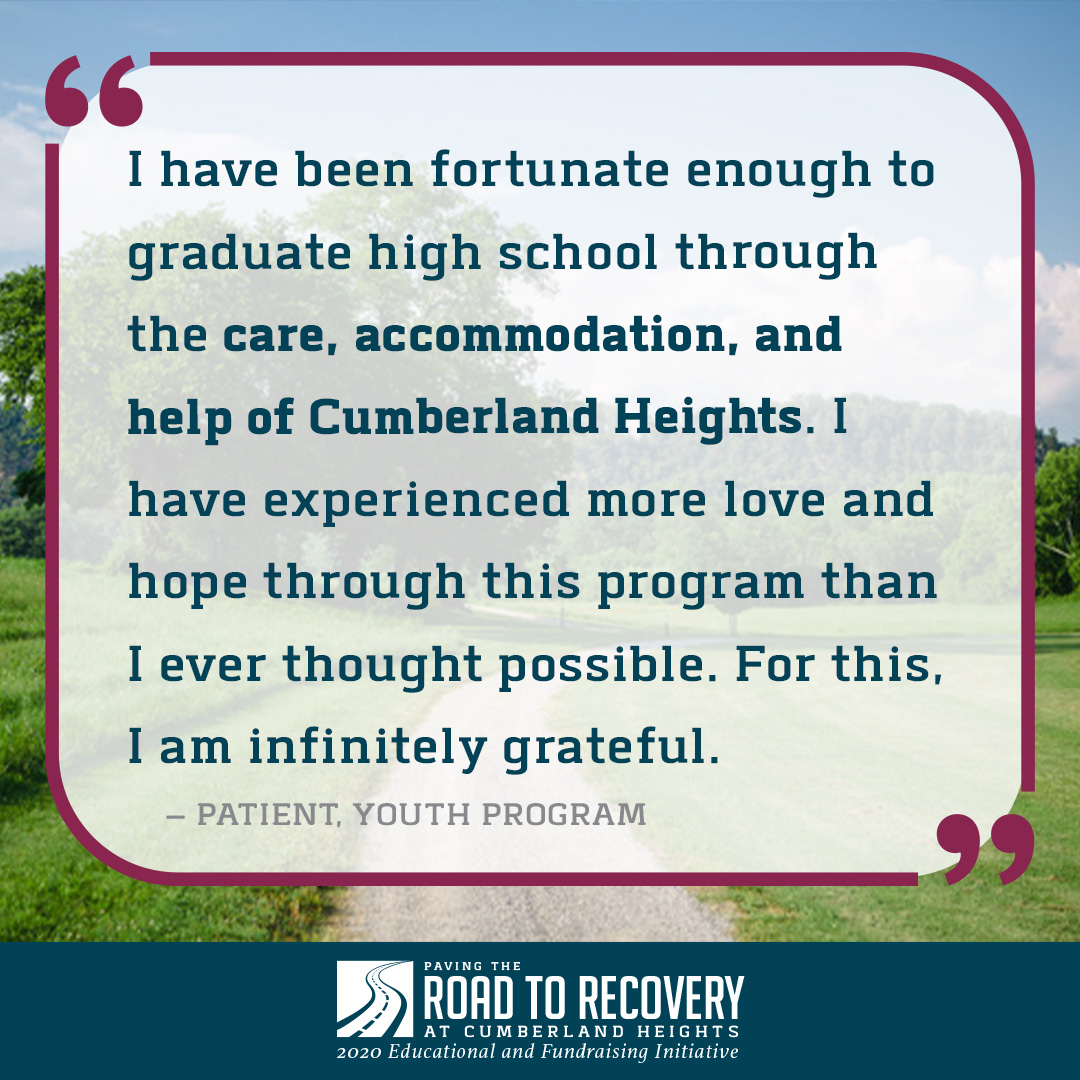Disease of the Family
At Cumberland Heights, we recognize addiction as a disease of the family. When one person is struggling with substance use disorder, the whole family is sick. We are dedicated to providing families with the tools they need to begin their recovery together. Our programs help the family unit work though the many feelings being experienced - anger, hurt, stress, sadness and even apathy. Today takes a deeper look into the very important family work we do.
This Is Why We Have the Family Program
Below is a poignant example of how a family member’s sobriety affects everyone in the household. We are sharing a handwritten note from one child of a patient who shares how they are grateful that their mother is finally in the program at Cumberland Heights (full text below the note):
Dear Cumberland Heights,
I want to start off by saying thank you so much for allowing my mother into your system. It means the world to me that she can cure her disease and have support from you all. Before she went into the program life was miserable for me and I had to step up as the older child and take care of sister when mom was drunk. Now that she has enter this program when she gets out I hope she stays sober not only for her but for us and it will make life much easier for us not having to deal with all the stress. Although her addiction was not good it helped me to be more mature and it kind of made me lose some people I used to be around hat were childish and imature. So now that she has been with Cumberland Heights I hope that I can live life more and be a kid and not have to take care of the family as much as I did. Because she will be sober and be able to do her job as a parent. Once again thank you so much and I appreciate everything that you all do to help her get better and the many things that you all will help her with in the future.
Alcoholism and Drug Addiction Affects the Whole Family
Cumberland Heights recognizes that addiction is a “disease of the family.” We have developed a family program to help educate and guide patients’ families as they navigate their way toward recovery for themselves as well as the patient. We’ve been treating patients in recovery for more than 50 years, and we know that addiction harms the patients AND their families … so we work to involve families in the recovery journey as much as possible.
The Cumberland Heights family program helps parents, siblings, and children of those with substance use disorder to more fully understand their loved one’s struggle, which in turn, helps increase the likelihood of long-term recovery from this disease for all. Our family program takes a deeper look at family roles, co-dependency, control and healthy boundaries. Often family members are so focused on their loved ones disease, they don’t realize how sick they too have become.
Our family program encourages loved ones of those suffering from addiction to continue their own recovery, by attending Al Anon or Alateen. There is a common misconception that if a loved one is using and/or is not well, you can’t be well either. Our family program teaches individuals they are responsible for their own healing, and can continue to become healthier even if their loved one is not. It takes practice, but it is possible!
It’s true, no family is immune from addiction – and everyone touched by this disease is affected in various ways, specific to them.
Family members of addicts may not even be aware how much they are affected by their relative’s substance abuse at the time, sometimes it takes months or years for the effect to manifest itself. Often, addiction’s negative impacts can be seen immediately in a family’s finances, a person’s health, and in their emotional wellbeing.
Drug and alcohol addictions destroy relationships. Our Family Program can help repair those relationships, especially the most important one – the one with yourself.
Look Inside The Men's Program and The Women's Program
Men’s Program Director Vivian Sypolt talks about the challenges men face when seeking treatment, and the beauty of witnessing breakthroughs with patients.
Women’s Program Director Melissa Hudgens and talks about some of the unique feelings women experience when coming to treatment.
Support Those Who Want To Recover Life
Your donation to Paving The Road to Recovery will directly support treatment and services to alumni living in recovery.













